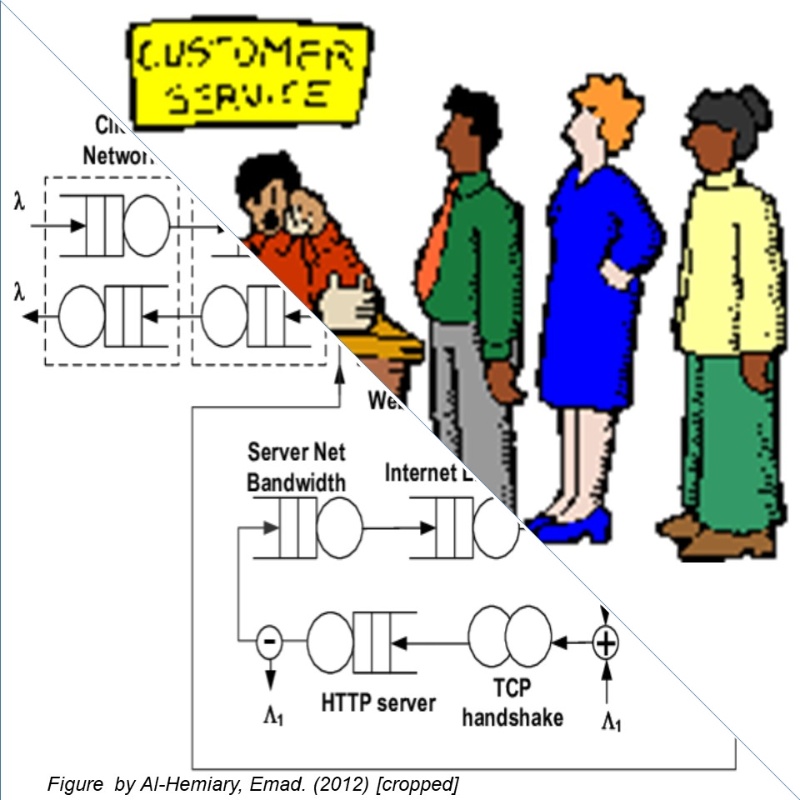The classical theory of queueing systems:
- Discrete and continuous time Markov chains, birth-death processes, and the Poisson process.
- Basic terminology of queuing systems, Kendall’s notation and Little’s theorem.
- Markovian waiting systems with one or more servers, and systems with infinite as well as finite buffers and finite user populations (M/M/).
- Systems with general service distributions (M/G/1): the method of stages, Pollaczek-Khinchin mean-value formula and and systems with priority and interrupted service.
- Loss systems according to Erlang, Engset and Bernoulli.
- Open and closed queuing networks, Jacksonian networks.
The theory is illustrated by examples from telecommunication and computer communication such as blocking in circuit switched networks, preventive and reactive congestion control, and traffic control for guaranteeing quality of service.
Furthermore, students develop their skills to perform performance analysis of queuing systems and to present the results, using mathematical software and suitable text editors.
